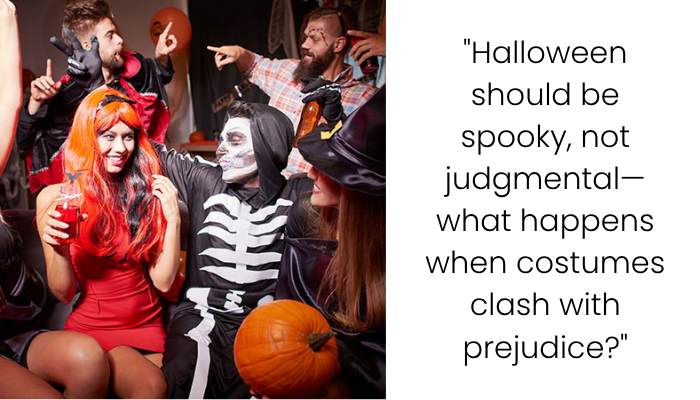“Masculinity So Fragile”: Guy Loses It Over GF’s Friends’ Halloween Costumes, Ruins Relationship
In this Halloween-themed dilemma, a 21-year-old guy is caught in a tricky situation involving his boyfriend, their costume choices, and a friend’s partner who’s shown clear discomfort around LGBTQ+ topics. Every year, their tight-knit friend group throws a Halloween bash, and this time—due to circumstances—they’re doing a virtual version on Zoom. Despite the remote setup, the gang is hyped and committed to going all out with their costumes.
The problem starts when Sasha’s boyfriend, David, suggests a group costume—Ross, Joey, and Chandler from Friends. But our narrator and his boyfriend, Alex, have already committed to characters from American Horror Story: Michael Langdon and Mr. Gallant. David’s response? Not great. He later messages privately, saying the costumes make him uncomfortable because the characters are likely gay and he doesn’t like them “flaunting” their sexuality. He even brings up past grievances, like how their Remus and Sirius (Harry Potter) costumes “ruined” things for him.
Now, our narrator is left wondering if sticking with the costume would make them an a-hole—especially since he doesn’t want to strain Sasha’s relationship with David.
Making a group costume for Halloween is always fun

But one man decided to throw a fit over his friend group’s plans
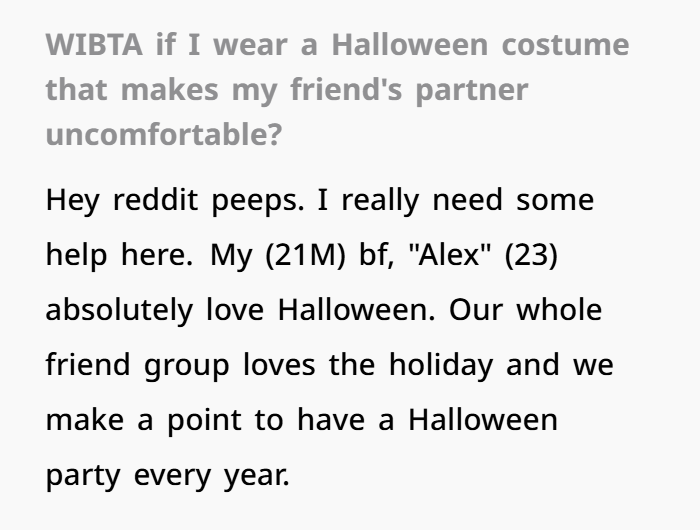
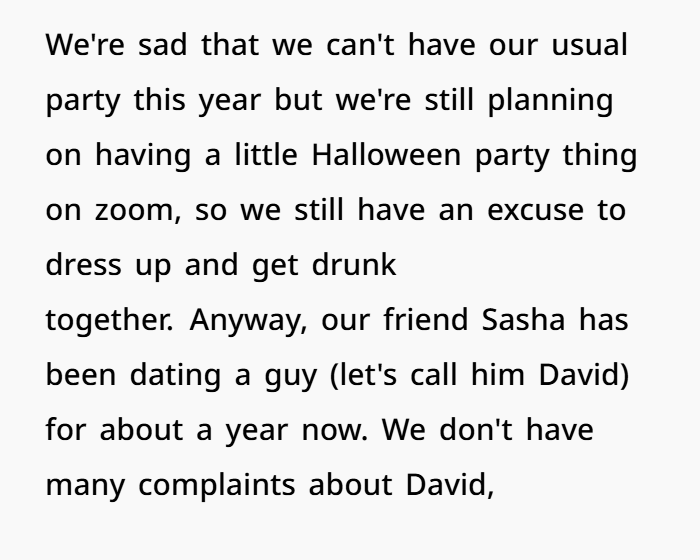
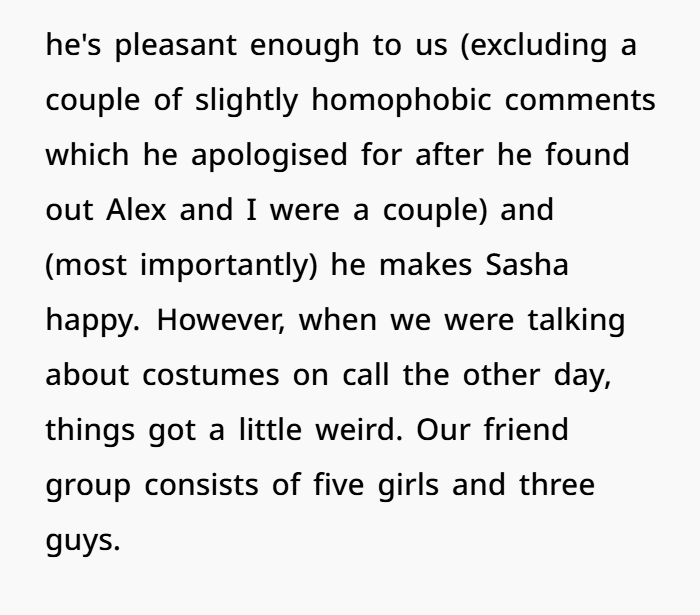
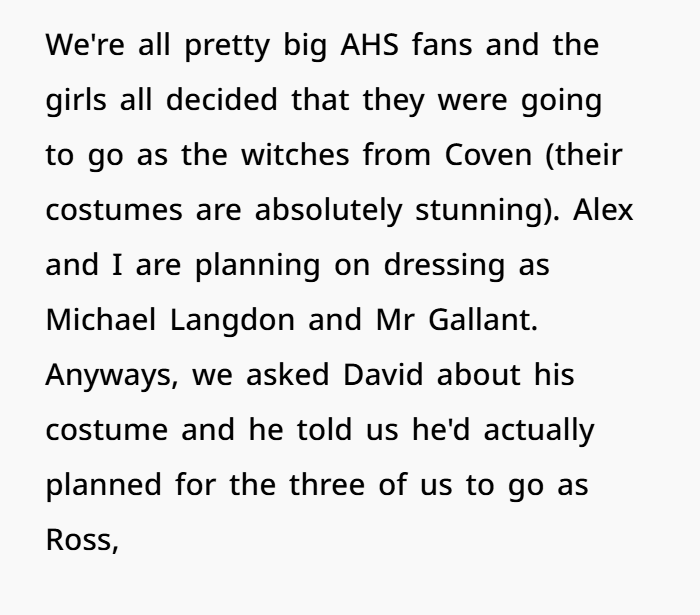
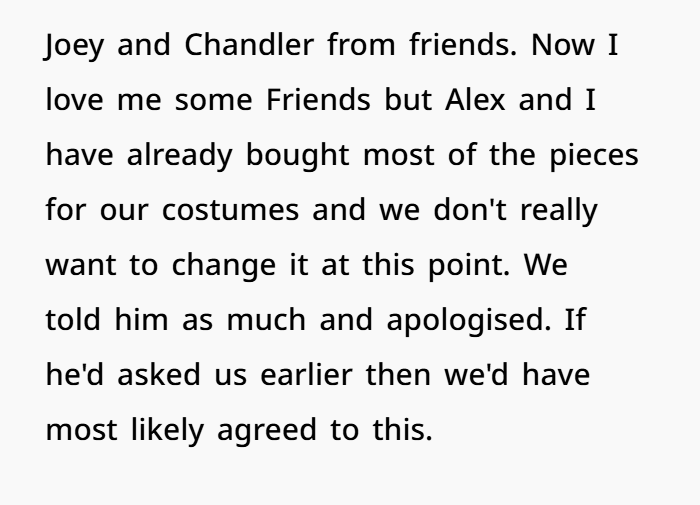
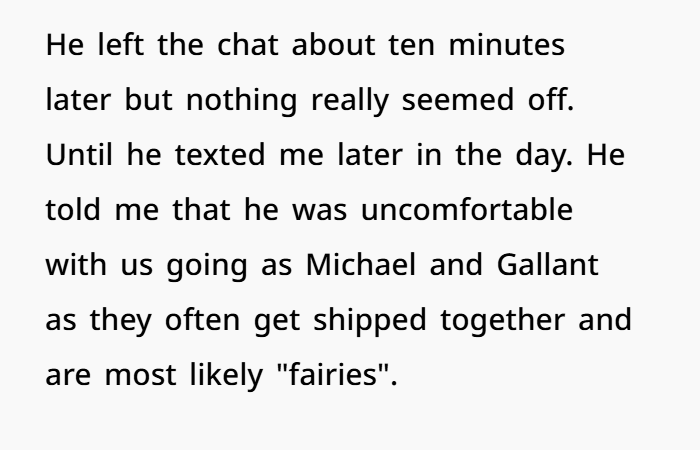
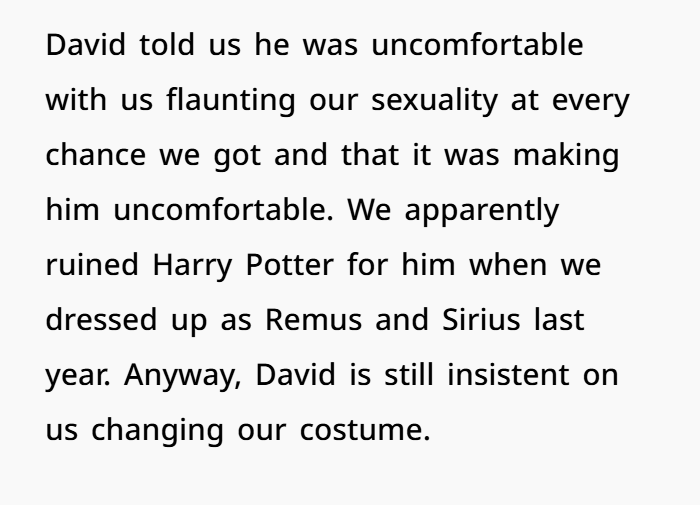
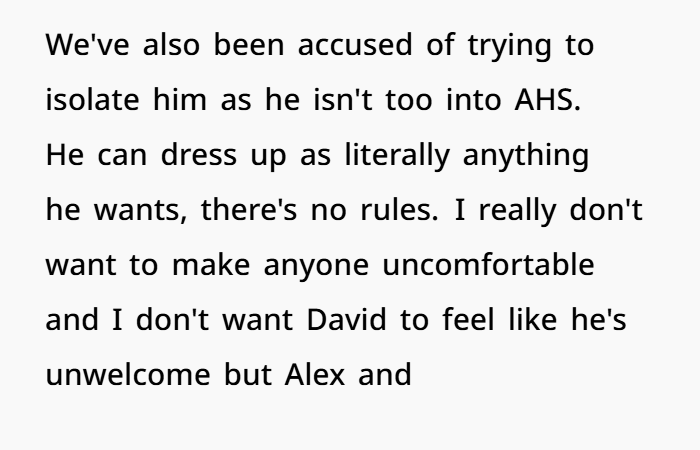

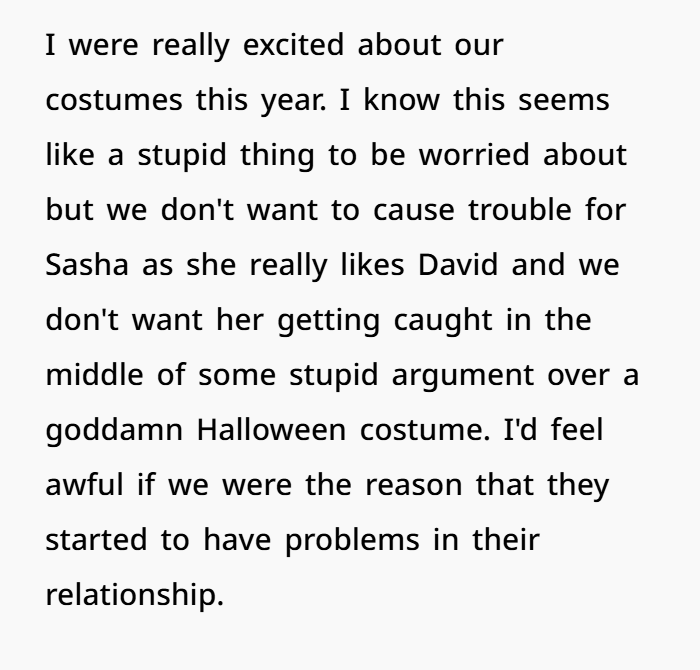


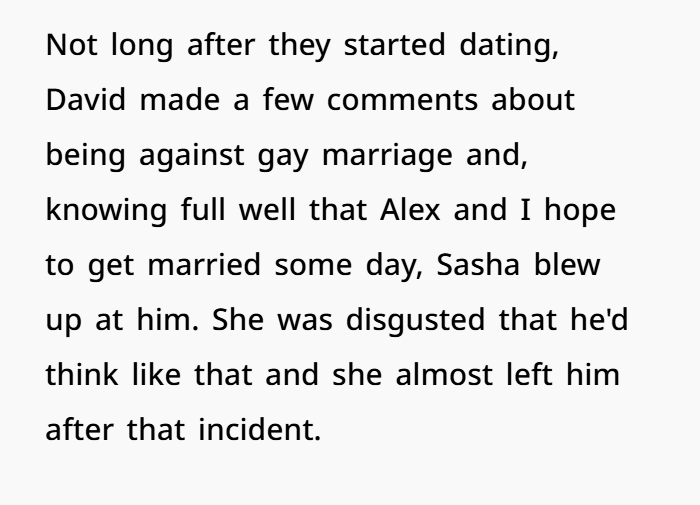

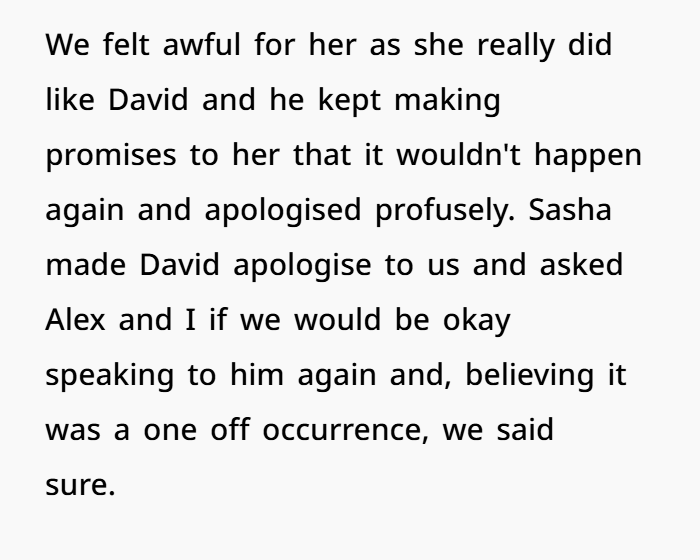
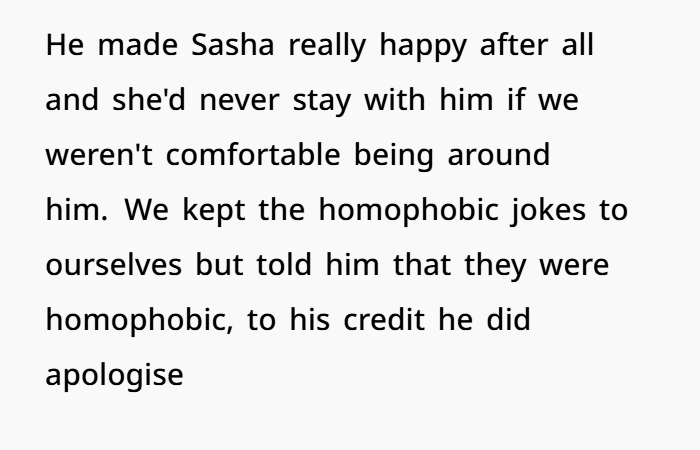
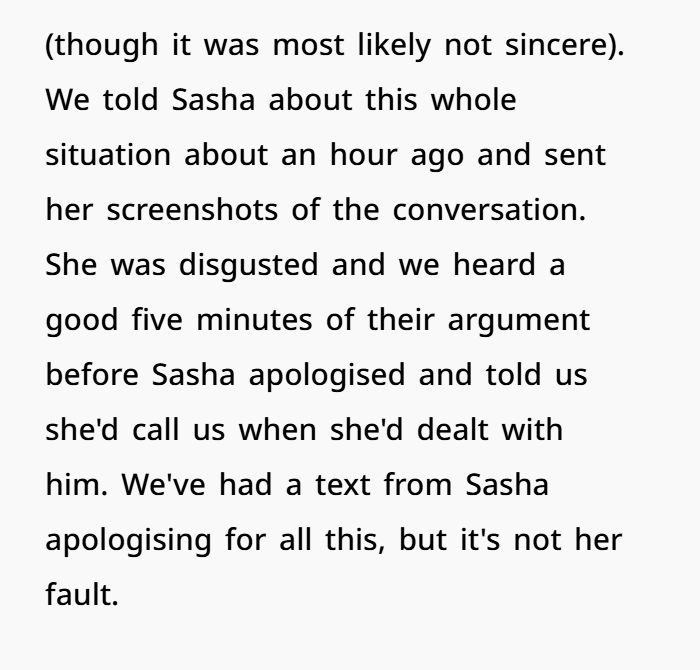
Halloween is supposed to be fun, right? Dress up. Be someone else for the night. But what happens when your costume becomes a mirror that reflects someone’s prejudice? That’s what’s happening here—and while it might seem like just a simple disagreement over a costume, there’s way more going on under the surface.
Let’s break it down. First off, the idea that choosing to dress up as LGBTQ+ characters is somehow “flaunting sexuality” is straight-up rooted in a long history of bias. Nobody ever says a straight couple dressed as Jack and Rose from Titanic are flaunting anything. But two guys dressing up as queer-coded characters? Suddenly it’s a problem.

David’s issue here isn’t about costumes. It’s about control, discomfort with LGBTQ+ representation, and pushing personal beliefs onto others. And this is more common than you’d think—even in friend groups where everyone seems chill on the surface.
🚨 Homophobia Disguised as “Personal Comfort”
David’s comments are a textbook example of casual homophobia. They’re subtle, dressed up in “I’m just uncomfortable” language, but the message is clear: I don’t want to see you express yourselves if it reminds me you’re gay.
This tactic is unfortunately common. Many people will claim they’re fine with LGBTQ+ people—as long as they don’t shove it in my face. But what does that really mean? Usually, it means they’re only comfortable if queer people perform straightness or tone themselves down to fit into heteronormative norms.
That’s not acceptance. That’s tolerance with conditions.
⚖️ Legally Speaking: Where Expression Meets Protection
Now, this story’s happening on a personal level, but it echoes a broader legal and social conversation. In many places, LGBTQ+ individuals are protected under anti-discrimination laws when it comes to employment, housing, and yes—even social settings depending on the context.
In the U.S., for example, the Supreme Court’s 2020 ruling in Bostock v. Clayton County extended workplace protections to LGBTQ+ employees under Title VII of the Civil Rights Act. That means being LGBTQ+—or expressing LGBTQ+ identity—shouldn’t be a reason for exclusion or unfair treatment.
Even in informal settings, we can apply this thinking. You have the right to exist, express yourself, and participate in social traditions (like Halloween!) without having to dim your light to make someone else comfortable.
🎭 The Cost of Code Switching
For queer people, code-switching—changing the way they talk, dress, or act to fit into straight spaces—is exhausting. It’s a survival skill. And asking someone to change their Halloween costume because it’s “too gay” is literally asking them to shrink who they are for your comfort.
That’s the emotional toll here. It’s not just about a costume. It’s about being asked—again—to mute a part of yourself to keep the peace. That chips away at someone over time. And for young LGBTQ+ adults especially, being told their joy is “too much” can leave lasting scars.
👻 Costumes Are Creative Expression
Legally and socially, costumes fall under the broad category of free expression. And Halloween is one of the few times adults get to fully dive into creative, theatrical play. Choosing characters that resonate with you—because they’re stylish, powerful, funny, or meaningful—is a core part of the fun.
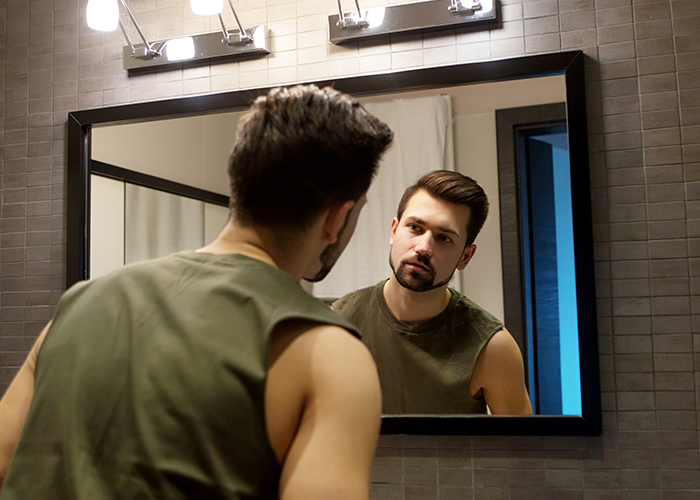
So when someone demands you change your costume to suit their comfort zone, that’s not a harmless request. That’s an attempt to limit your expression—and make you question if your existence is valid in the space you’re in.
🧠 Let’s Talk Boundaries
David’s reaction also crosses several social boundaries. First, it’s not his place to dictate what others wear—especially when he didn’t communicate his idea early enough. He also weaponized the idea of being “excluded” by twisting it into something personal, despite the fact that the friend group welcomed him and never set rules for costume themes.
Saying, “You’re trying to isolate me because I don’t like AHS” is classic deflection. It shifts blame from the person causing harm to the people just living their lives.
💬 Real Talk: What Should You Do?
Here’s the thing. You’re not causing drama—David is. You and Alex are excited about a costume. You bought pieces for it. You planned it out. That’s not targeting someone. That’s just existing and having fun.
You’ve also gone out of your way to be kind. You forgave his earlier comments. You gave him space. You told him he could wear whatever he wants. That’s more than fair.
If David has an issue, it’s on him to deal with that discomfort. Sasha choosing to be with someone who holds outdated views isn’t your burden to carry. You’re not the reason they’re fighting—David is.
He also answered some reader questions
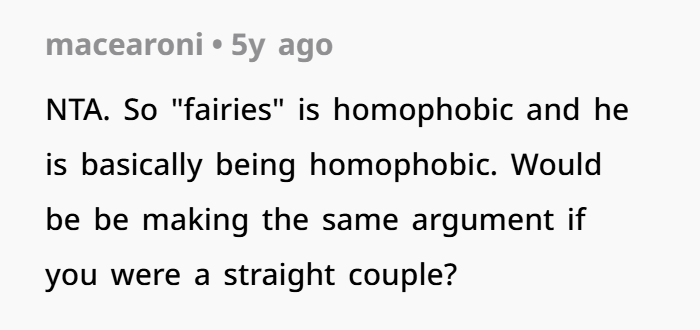

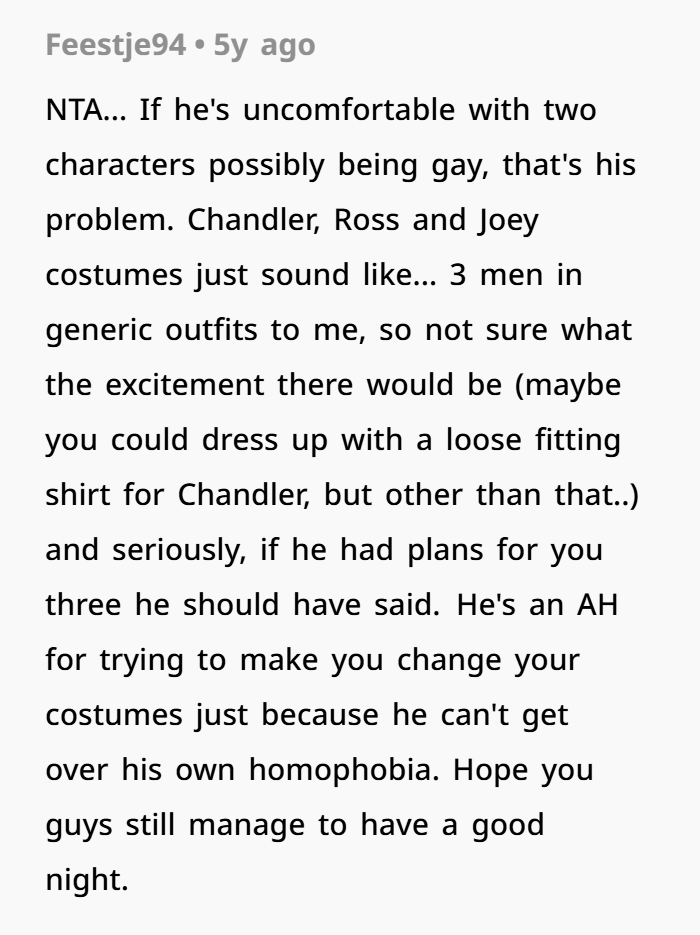

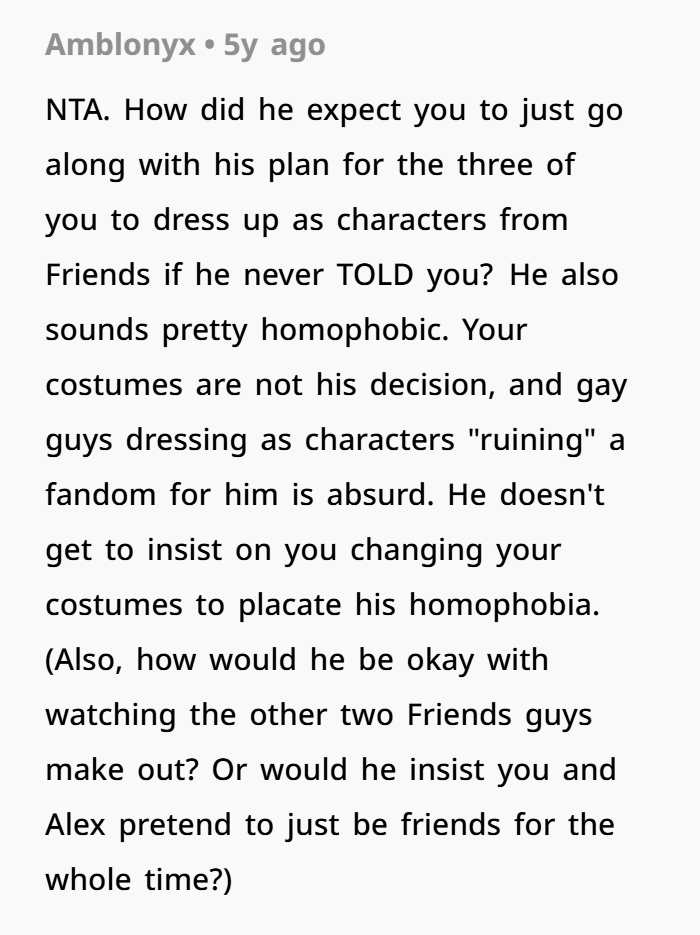
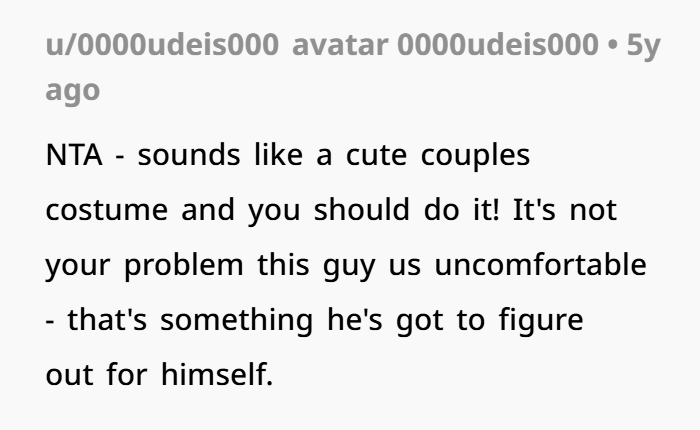

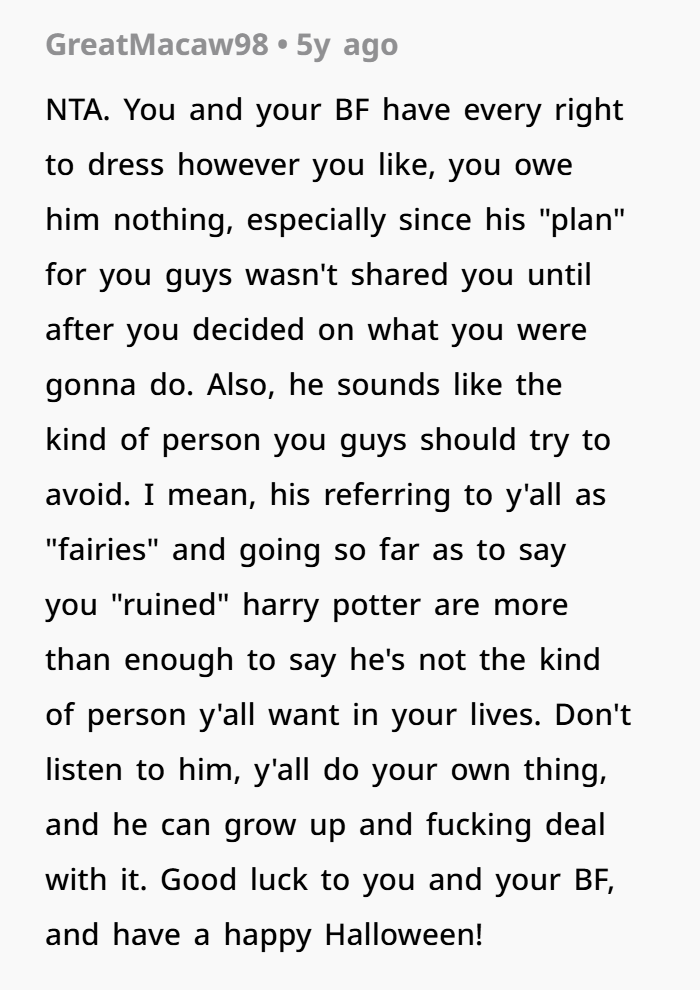
You’re NTA. In fact, you’re showing a lot of emotional intelligence by even asking this question. But remember this: Halloween isn’t the issue here. Your existence is. And nobody should have to shrink themselves to keep the peace with someone who only pretends to be okay with who they are.
Be fabulous. Wear the costume. Have your virtual party. And most importantly—don’t let other people’s discomfort police your joy.

